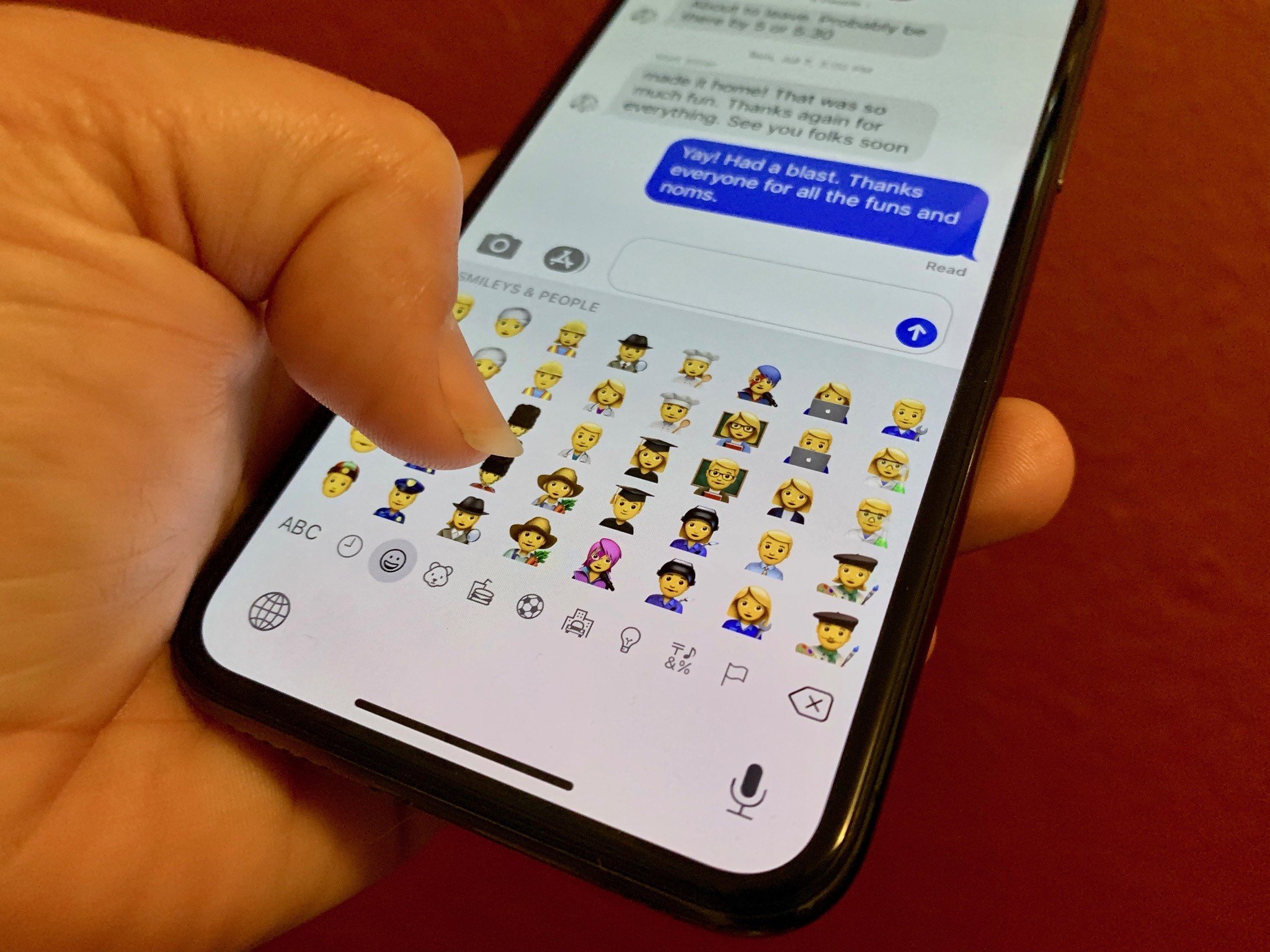Apple sued by creator of emojis with different skin tones

iMore offers spot-on advice and guidance from our team of experts, with decades of Apple device experience to lean on. Learn more with iMore!
You are now subscribed
Your newsletter sign-up was successful
What you need to know
- Apple is being sued by Katrina Parrott, the creator of the iOS app iDiversicons.
- Parrott claims Apple infringed copyright, stealing her idea for emojis with different skin tones.
- Apple says that copyright does not extend to the idea of applying five different skin tones to emojis.
Apple is being sued by the creator of the iOS app iDiversicons over copyright infringement stemming from its use of emojis with different skin colors.
As reported by The Washington Post, Katrina Parrott was invited to Cupertino in 2013, to discuss partnering with Apple on an app based on her idea of emojis with different skin tones. From the report:
It was 2013, and the tiny digital drawings — smiley faces and thumbs-up icons sent over text message — depicted people in only one skin tone. Parrott, who is Black, said her oldest daughter came home from college one day and lamented that she couldn't express herself through emoji with skin tones that matched her own.
Embracing the idea, she launched iDiversicons six months later, allowing users to copy and paste emojis with five distinct skin tones into messages and such. However, things quickly turned sour:
According to Parrott, though, her early success turned to heartbreak when Apple and other technology companies incorporated skin tone options into their operating systems, making her app obsolete and leaving her $200,000 in the hole.
The report says Parrot has filed a lawsuit against Apple:
Parrott is now suing Apple for copyright infringement in a case that highlights the lopsided power dynamic on mobile app stores, where app creators are easily copied and pushed aside by technology giants. Todd Patterson, a Texas intellectual property lawyer representing Parrott, said the case is about simple values. "The woman who was trying to improve inclusion gets excluded," he said.
Apple responded to the report simply by directing the post to its own court filings, which state "copyright does not protect the idea of applying five different skin tones to emoji because ideas are not copyrightable", claiming it developed diverse skin tone emojis on its own, rather than copying Parrott's work. Apple adds emojis regularly to its software, recently adding 217 emojis to iOS 14. There are also a number of third-party apps, including these best emoji apps for iPhone and iPad available to users.
One intellectual property attorney told The Post that Parrott's case would be tough to win, as Apple's emojis were not completely identical, and that "the fact that she came up with the idea first is not enough."
Apple has previously been accused of 'sherlocking' features into its own software, notably by software developer Blix, who claim that Sign in with Apple was a rip-off of one of its own features. You can read the full report here.
iMore offers spot-on advice and guidance from our team of experts, with decades of Apple device experience to lean on. Learn more with iMore!

Stephen Warwick has written about Apple for five years at iMore and previously elsewhere. He covers all of iMore's latest breaking news regarding all of Apple's products and services, both hardware and software. Stephen has interviewed industry experts in a range of fields including finance, litigation, security, and more. He also specializes in curating and reviewing audio hardware and has experience beyond journalism in sound engineering, production, and design.
Before becoming a writer Stephen studied Ancient History at University and also worked at Apple for more than two years. Stephen is also a host on the iMore show, a weekly podcast recorded live that discusses the latest in breaking Apple news, as well as featuring fun trivia about all things Apple. Follow him on Twitter @stephenwarwick9
